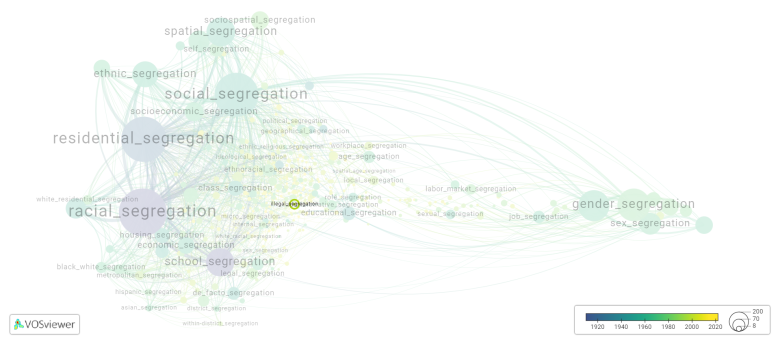Illegal segregation
Date and country of first publication[1]
2008
United Kingdom
Definition
Illegal segregation refers to the practice of separating individuals or groups based on their race, color, religion, national origin, or other protected characteristics in a manner that is prohibited by law. In many countries, including the United States, segregation based on race was prevalent during different periods of history. However, various laws and court decisions have deemed such segregation illegal. In the United States, for example, the Civil Rights Act of 1964 and subsequent court rulings made segregation in public facilities, such as schools and public transportation, unlawful.
See also
Related segregation forms
Illegal segregation is frequently discussed in the literature with the following segregation forms:
racial segregation, legally accepted segregation

This visualization is based on the study The Multidisciplinary Landscape of Segregation Research.
For the complete network of interrelated segregation forms, please refer to:
References
Notes
- ↑ Date and country of first publication as informed by the Scopus database (December 2023).
At its current state, this definition has been generated by a Large Language Model (LLM) so far without review by an independent researcher or a member of the curating team of segregation experts that keep the Segregation Wiki online. While we strive for accuracy, we cannot guarantee its reliability, completeness and timeliness. Please use this content with caution and verify information as needed. Also, feel free to improve on the definition as you see fit, including the use of references and other informational resources. We value your input in enhancing the quality and accuracy of the definitions of segregation forms collectively offered in the Segregation Wiki ©.
Illegal segregation appears in the following literature
Beratan G.D. (2008). The song remains the same: Transposition and the disproportionate representation of minority students in special education. Race Ethnicity and Education, 11(4), 337-354. https://doi.org/10.1080/13613320802478820
